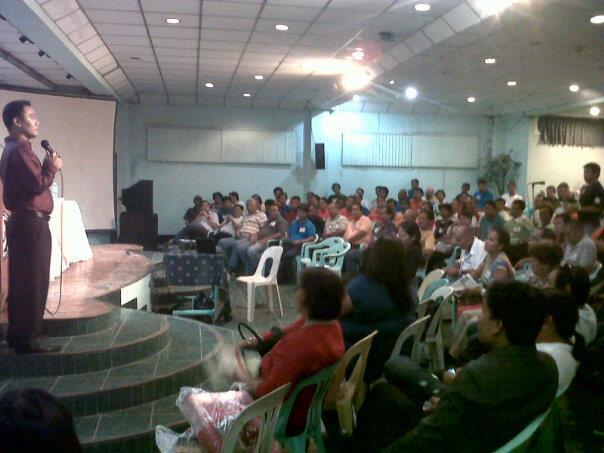CHARTER CHANGE ADVOCACY COMMISSION Overview Of EO 495

By: Lito C. Lorenzana | October 3, 2013
President at Centrist Democracy Political Institute
1Loves.
0Comments.
0People boxed this.
During the Council of State Meeting in Malacanang, President Gloria Macapagal Arroyo released EO 495 creating the Charter Change Advocacy Commission.This body is tasked to advocate what has been produced by the earlier Constitutional Commission, created under EO 453, dated August 19, 2005.
But let me give you a chronicle of events that led toward the creation of the Advocacy Commission.
Dr. Jose V. Abueva, Chairman of the Constitutional Commission (Concom as it is popularly known) has eloquently presented to you an abbreviated version of the work of this body. Majority of its provisions are now being debated by the Committee on Constitutional Revision in the House of Representatives. It will be taken in plenary soon and hopefully approved.
Our official task in the Concom ended in December 16, when we submitted to the President our work and the she in turn passed it on to the Lower House of Congress. The raging public debate that we precipitated however continues.
When the President positioned the Charter Change agenda toward the mainstream of the political discourse, we never had any delusions that we, the advocates of the Citizen's Movement for Federal Philippines (CMFP) will have an easy time explaining, let alone sell the concept to the body politic.
On the other hand, we had unexpectedly a proper vehicle through which we can pursue our advocacies to a wider audience.
In the dynamics of an organization of peers of diverse beliefs and articulate experts, a negotiated outcome must be created - the finished document which is now undergoing scrutiny by both congress and the public is one such result - a document not perfect but sharpened by intense internal debates.
WHAT NEXT ? This question was in the minds of the movers of Charter Change. Both the President and the Speaker of the House simultaneously saw the necessity of seeking the people's help in pushing the agenda further. The Senate remained recalcitrant and would not be a party to its own demise…Senator Joker Arroyo put it succinctly when he declared that "…the Senate will not be involved in writing its own obituary…"
A glimmer of hope came from an unexpected quarter. An SWS series of surveys suggested that long before the great debate on charter change began (May 2005), 70% of the people were against it. On the other hand, 73% of the people don't know enough about the constitution.
When the debate on charter change came into heat and more people began to know more about the Constitution, the figures changed dramatically, 54 %, or a majority, approve of Charter Change now - an increase from 30%.
The ramification of this is simple: The more the people are informed and educated about the constitution and the issues, the more they are for changing it.***
EO 495 created a group of 15 men and women, all invited by President GMA, all volunteers, most were members of the Concom, all are not paid salaries for their work and all will toil for the next 8 months - all advocating for:
· The shift from presidential form to a parliamentary form of government;
· The shift from a unitary structure of government to autonomous territories/federal states; and
· The liberalization of the economy.
As embodied in the proposed amendment of the 1987 Constitution submitted by the Consultative Commission… The Charter Change Advocacy Commission (Adcom or Concom2) is the "WHAT NEXT ?" , as articulated by the two main movers and proponents of Charter Change, the President and the Speaker. The mandate given us, the advocates is very clear: We have to inform and educate the Pilipino people on the alterations proposed on our present constitution in order for them TO MAKE AN INFORMED CHOICE.
*** A summary of public opinion stated thus:
· Extensive education on the Constitution is called for.
· Parliamentary Government has a fighting chance.
· More foreign participation in the economy is more welcome
· The idea of having regional governments (federal) is popular
Strategies
a) The Commission shall conduct a nationwide campaign to reach the 79 provinces and 117 cities in the country. The members of the Commission will be divided into two (2) teams with seven (7) members in each team. The Commission will work mainly with the National Economic Development Authority (NEDA) in coordination with Regional Development Councils (RDCs),and the Union of Local Authorities of the Philippines (ULAP). b) A Speaker’s Bureau will be organized, composed of the following: Charter Change Advocacy Commission members, former members of ConCom, members of the Citizen’s Movement for a Federal Philippines (CMFP), and members of the academe, political scientists and sectoral representatives who are advocates of Charter change as embodied in the ConCom proposed amendment. A team of three (3) from the Speaker’s Bureau will be fielded for speaking engagements with specific target audiences. c) Media “Talking Heads†will be designated during the campaign in Metro Manila and major cities to articulate in media the ConCom proposed amendment to the 1987 Constitution.
Target Audience. The audience should be targeted along the following categories:
a) By sector
- Government Bureaucracy (Executive Departments and its Attached Agencies; Government-Owned and Controlled Corporations)
- Business Executives and Professional Organizations
- Civic and Religious Groups
- Academe (Colleges and Universities)
- Non-Government Organizations/People’s Organizations
- Sectoral Groups ( Labor; Indigenous People; Business; Women; Youth; Basic Sectors; Urban Poor; Elderly; overseas Filipino workers)
- Local Governments (through the Union of Local Authorities of the Philippines)
b) Based on the extent of knowledge and firmness of opinion on Charter change as embodied in the Concom’s proposed amendment
c) Based on geographical scope
- More From this Author
- Comments








